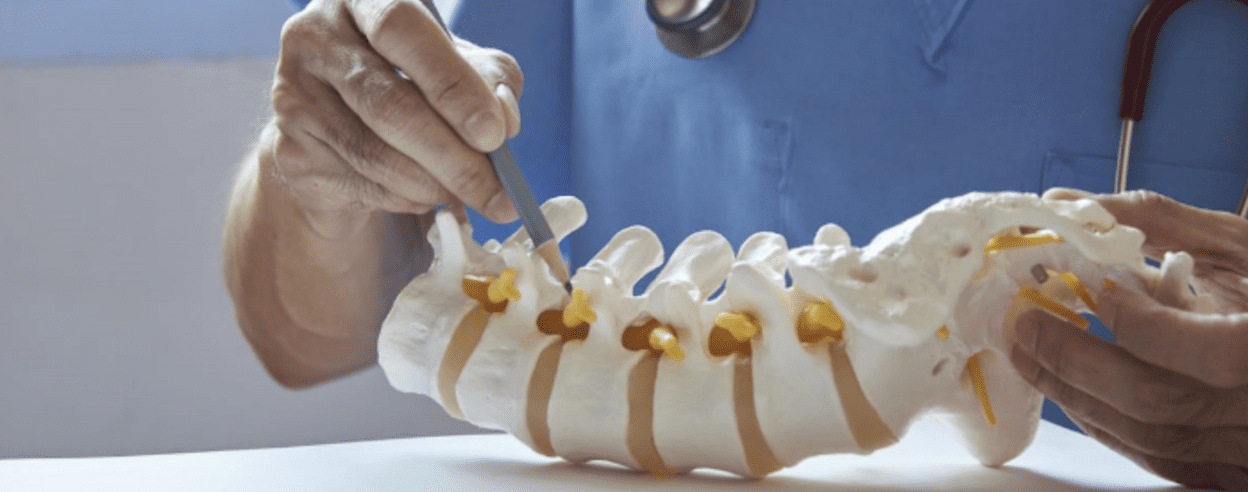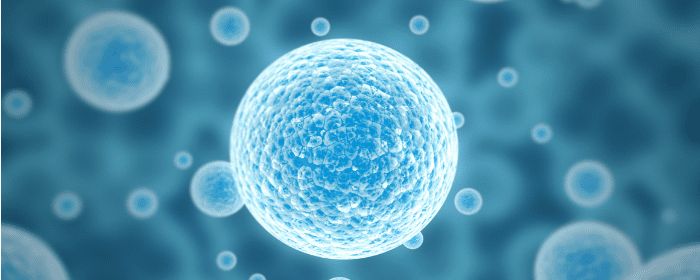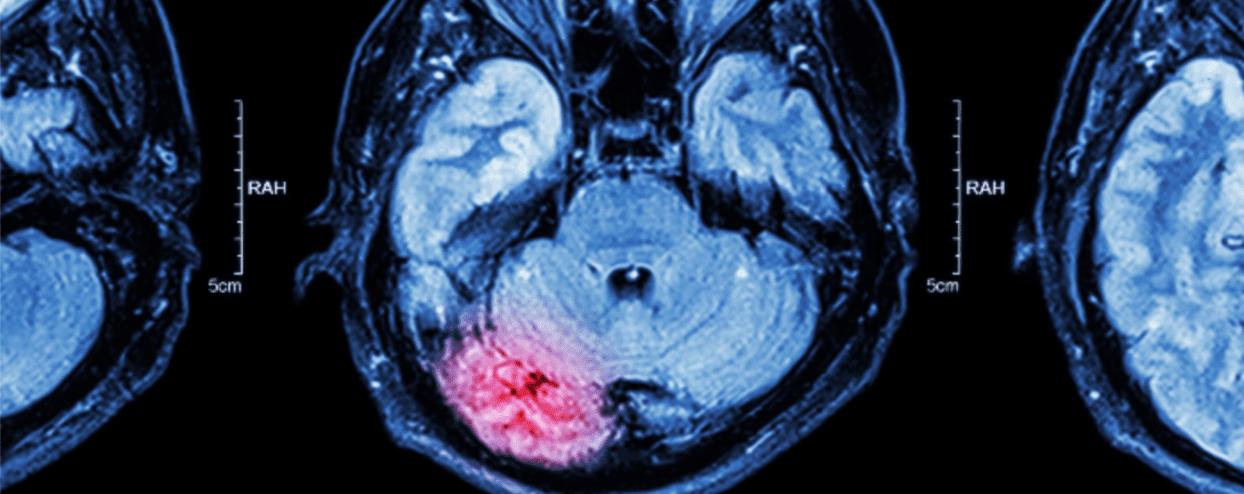
by admin | Apr 2, 2021 | Stem Cell Therapy, Mesenchymal Stem Cells, Osteoarthritis, Stem Cell Research
Osteoarthritis (OA), the most common form of arthritis, affects over 32 million people in the U.S. each year. Characterized by a progressive degeneration of cartilage resulting in pain, stiffness, and swelling in the joints, and most frequently occurring in the hands, hips, and knees, OA has no pharmacological, biological, or surgical treatment to prevent progression of the condition. The authors of this case report focus specifically on potential treatment options for OA of the knee.
With the emergence of stem cell-based therapies for a multitude of health conditions, stem cells, and specifically mesenchymal stem cells (MSCs), have demonstrated immunosuppressive activities that could prove beneficial in supporting the regeneration of cartilage tissue in and around joints in the body.
Research has demonstrated that MSCs are effective in differentiating into essential connective tissues like fat, cartilage, and bone; MSCs have also demonstrated immunomodulatory and anti-inflammatory effects, the ability to self-renew, and plasticity, making MSCs a potentially powerful treatment of OA in the knee (and other parts of the body).
This specific case study details cartilage regeneration in the knee of a 47-year-old woman diagnosed with OA when treated with bone marrow-derived MSC cells. For the course of this treatment, autologous MSCs were collected from bone marrow harvested from the iliac crest. After processing and preparing the MSCs, the sample was confirmed to be free of microbial contamination and was prepared and transplanted into the patient’s knee joint.
Periodic follow-ups with the patient revealed no local or systemic adverse events associated with the MSC transplant procedure. The authors of this case report found that the patient’s functional status of her knee, the number of stairs she could climb, reported pain on a visual analog scale, and walking distance all improved in the two months following the MSC transplant procedure.
Additionally, twelve months after the transplant, the patient demonstrated a positive change in WOMAC (3 to 2), a continued increase in the number of stairs climbed (5 increasing to 50), and visual analog (80 mm to 11 mm). The patient also demonstrated improved gelling (or the amount of time it takes for synovial fluid to thicken as a result of rest) in the knee from 8 minutes to 30 minutes; knee flexion also increased 20° (100° to 120°). Periodic MRIs taken after the transplant procedure demonstrated an extension of the repaired tissue over the subchondral bone.
Mehrabani, et al. conclude that MSC transplantation for treating OA in the knee appears to be a simple, safe, effective, and reliable treatment option that has demonstrated pain relief, improved quality of life, and significantly improved quality of cartilage without hospitalization, pharmaceuticals, or surgery.
Source: (n.d.). The Healing Effect of Bone Marrow-Derived Stem Cells … – NCBI – NIH.; from https://www.ncbi.nlm.nih.gov/pmc/articles/PMC5003953/

by Stemedix | Mar 22, 2021 | Stem Cell Therapy, Spinal Cord Injury
Spinal stenosis occurs when the spaces within the spine narrow, resulting in pressure on the nerves running through the spinal column. The condition often develops in the lower back (lumbar stenosis) or neck (cervical stenosis).
People with spinal stenosis may not experience any symptoms, while others have pain, muscle weakness, numbness, and tingling. The condition is typically a result of osteoarthritis, the wear-and-tear deterioration of joints that occurs over time. Some doctors may recommend surgery to create additional space for the nerves.
Spinal Stenosis Symptoms
The symptoms of spinal stenosis may vary based on where the issue is located.
Symptoms of Cervical Stenosis
With stenosis of the upper spine or neck region, patients often experience:
- Weakness in the extremities, such as a hand, foot, arm, or leg
- Balance issues
- Numbness or tingling in the extremities
- Neck pain
- Bowel or bladder issues in extreme cases
Symptoms of Lumbar Stenosis
When stenosis occurs in the lower back, patients may have:
- Weakness or numbness in the foot or leg
- Pain or cramping in one or both legs while walking or after long periods of standing
- Back pain
Causes of Spinal Stenosis
Some people are naturally born with a narrow spinal canal, but in many cases, spinal stenosis is a result of outside factors that have caused the narrowing. Possible reasons for stenosis may include:
- A herniated disk: The soft cushions between vertebrae often dry out and are less able to absorb shock over time. If a disk’s exterior cracks, the material may escape and put pressure on the nerves or spinal cord.
- Bone overgrowth: Osteoarthritis is commonly associated with bone spurs, which can make their way into the spinal canal. Paget’s disease, a bone disorder, can also result in bone overgrowth.
- Ligament thickening: The cords that hold the spine together may thicken over time, bulging into the spinal column and creating pressure on nerves.
- Spinal injuries: Trauma caused by car accidents and other injuries can damage the vertebrae, leading to issues such as displaced bone or fractures that can impact the spinal canal. Also, the swelling of tissue following back surgery can put pressure on the nerves in the spine.
- Tumors: Development of tumors in the spinal cord’s membranes can also occur, though they are uncommon.
In addition to these causes, certain factors also increase a person’s risk for spinal stenosis. Being over the age of 50, experiencing a back injury, and having a congenital spinal deformity such as scoliosis are all considered risk factors. Genetic diseases that impact bone or muscle development can also lead to spinal stenosis. If you want to learn more then contact a care coordinator today!

by admin | Mar 19, 2021 | Stem Cell Therapy, Autoimmune, Mesenchymal Stem Cells
Autoimmune diseases occur as a result of the body’s natural immune system mistakenly attacking and damaging healthy, normal cells and tissue. Currently, an estimated 60 different autoimmune diseases affect between 5 and 8 percent of the U.S. population[1]; making it one of the largest disease burdens faced today.
Divided into two distinct categories, autoimmune diseases are typically classified as organ-specific or systemic autoimmune diseases. Systemic autoimmune diseases include systemic lupus erythematosus (SLE), rheumatoid arthritis, systemic sclerosis, and polymyositis; organ-specific autoimmune diseases include Hashimoto thyroiditis, Graves disease, type 1 insulin-dependent diabetes, and pernicious anemia.
Currently, most cases of autoimmune disease are treated with corticosteroids, cyclophosphamide, azathioprine, and/or methotrexate. While all of these medications have been demonstrated to be effective in treating autoimmune disease in some capacity, improvement is not universal; these medications have also been associated with known toxicities.
As research continues to explore the immune system and various autoimmune disorders, it appears that adult stem cells offer promise for effective, non-pharmacological treatment of autoimmune disease.
The author of this review points out that while many animal studies exploring the potential benefits of autologous and allogeneic hematopoietic stem cells (HSCT) exist, the danger associated with allogeneic bone marrow transplants has limited studying these transplants to only those subjects with severe autoimmune disorders that are not responding to other, more proven treatments.
The review also focuses on the treatment of autoimmune disease with mesenchymal stem cells (MSCs). Specifically, the author points to several in vitro studies demonstrating the immunomodulatory properties of MSCs as well as their immunosuppressive effects on MHC-mismatched lymphocyte proliferation. This form of MSC transplantation produces relatively short effects but has proven to be profoundly different from HSCT. Specifically, this procedure does not require the patient to be immunosuppressed in advance of transplantation and produces a therapeutic effect in the affected organ as a result of the homing of MSCs. Studies have demonstrated that MSC transplant has reversed multiorgan dysfunction in SLE mice and humans while also demonstrating stable 12 – 18-month disease remission. As a result, further clinical trials exploring autologous bone marrow MSC (BM-MSC) are currently ongoing.
With the difficulty and risk associated with BM-MSC transplantation, the author points out that since adipose tissue is readily available and easily obtainable, adipose tissue-derived MSC (AT-MSC) are being explored for their potential as a regenerative treatment and wound healing option. Early studies have demonstrated AT-MSC to have immunosuppressive properties that reduce experimental autoimmune encephalomyelitis (EAE), decrease spinal cord inflammation, and significantly ameliorate the severity of colitis and arthritis. In fact, there is convincing evidence indicating that AT-MSC transplant produces therapeutic results comparable to MSCs derived from bone marrow.
At the same time, gene therapy research exploring the use of stem cells as a vehicle in autoimmune disease demonstrated delivery of brain-derived neurotrophic factor (BDNF) genes in an animal model of multiple sclerosis using bone marrow stem cells and human insulin gene transfected BM-MSC therapy in murine type 1 insulin-dependent diabetes has demonstrated positive results, including decreased blood glucose level, improved secretion of human insulin in serum and liver, and delayed onset and clinical severity of EAE.
As research continues to explore the benefits of adult stem cell therapy for the treatment of autoimmune disease, and with genetic therapy showing promising treatment options, researchers are optimistic of the benefits provided through a combination of stem cell and gene therapy.
Source: (n.d.). Adult Stem Cell Therapy for Autoimmune Disease – NCBI – NIH. Retrieved from https://www.ncbi.nlm.nih.gov/pmc/articles/PMC4021767/
[1] “Autoimmune Disease – National Stem Cell Foundation.” https://nationalstemcellfoundation.org/glossary/autoimmune-disease/. Accessed 9 Mar. 2021.

by Stemedix | Mar 15, 2021 | Traumatic Brain Injury, Stem Cell Therapy
Traumatic brain injuries (TBI) occur from an outside force, and are commonly caused by sports injuries and car accidents. In many cases, symptoms can improve over time with the help of therapy. In some cases, however, it’s possible for symptoms to worsen over time. Here’s a closer look at why some cases improve and others appear to decline.
Secondary Brain Injury: In certain patients, complications develop after the initial injury, such as an infection or hematoma. The injury may also cut off blood to the brain, causing brain cells to die. The effects of these secondary brain injuries may not appear right away, which is why some patients’ symptoms seem to worsen over time.
Chemical Events: A brain injury can also trigger chemical changes which lead to worsening symptoms. For instance, the patient may develop an abundance of neurotransmitters, causing brain cells to become overstimulated and eventually die off.
Failure to Receive Treatment: Lastly, if a patient fails to receive proper treatment to facilitate healing following their brain injury, their symptoms are likely to worsen.
How to Minimize the Risk of Worsening Symptoms
Experts don’t know why symptoms worsen in some TBI cases and not others, but there are still factors within your control that can promote optimal outcomes. Here are a few options to consider.
Attend Therapy
Many people recovering from TBI need a combination of physical, speech, and occupational therapy. These rehabilitative programs help you rebuild physical strength, support blood flow to the brain, sharpen your mental skills, and reestablish your daily routine. Most importantly, they keep the brain and body active and can help prevent worsening symptoms.
Keep Your Brain Stimulated
Your brain is a muscle that can benefit from regular exercise. If there’s a type of puzzle you enjoy, such as sudoku or crosswords, try doing some during your downtime. You might also consider music or art therapy to engage your brain. Stimulating your brain encourages it to produce neuropathic growth factors, which kickstart the development of brain cells. Of course, you’ll want to follow your practitioners’ recommendations and avoid overstimulation during early recovery.
Engage Your Neuroplasticity
Neuroplasticity is the mechanism the brain uses to create neural pathways which allow healthy brain tissue to take on functions the damaged portions can no longer accommodate. Repetition is one of the simplest yet most effective ways to engage neuroplasticity. Thus, if there’s a skill you want to remaster, you’ll need to practice it often. Over time, it will start to become easier.
Get Support
TBI recovery can be frustrating, especially if you’ve reached a plateau. Support groups are available to encourage you to overcome plateaus and discuss the ups and downs with first-hand knowledge. Whether you choose to join an online community or meet with a group in person, you may find that sharing your experiences in a supportive setting is a great outlet for the emotional and mental challenges that come with recovery.
Although it’s impossible to say for sure whether someone’s TBI symptoms will worsen or improve with time, the steps above won’t hurt in either case. By staying mentally and physically active and pursuing treatments such as therapy, individuals who have experienced brain injuries can support the best possible outcomes in their recovery. Patients are discovering the alternative option of stem cell therapy to help manage symptoms and assist in the healing process. In particular, stem cells can slow or halt further brain damage and promote healing by reducing inflammation and achieving a tissue-protective effect. If you would like to learn more then contact us today to speak with a care coordinator.

by admin | Mar 12, 2021 | Stem Cell Therapy, Mesenchymal Stem Cells, Osteoarthritis
Affecting over 52 million people, or nearly 25% of the adult patients, osteoarthritis (OA) continues to be the leading cause of disability for people in the United States. Occurring as a result of the protective cartilage, or articular cartilage, that cushions the ends of the bones breaking down, OA can occur in any joint, but most often causes pain, stiffness, and swelling in the hands, feet, knees, hips, and lower back[1][2].
To date, current conventional treatments employing pharmacological treatments have been developed to temporarily address the symptoms (i.e.: relieve pain, stiffness, and swelling) of OA, but have proven ineffective in preventing the onset, progression, or long-term symptoms of the condition. While there are a number of reasons conventional OA therapies have demonstrated themselves to be ineffective, the primary reason is that they do not regenerate the cartilage required to prevent the progressive degenerative process associated with OA.
However, recent studies exploring mesenchymal stem cell-based therapy for OA have demonstrated several potential benefits, including regenerating lost cartilage, slowing cartilage degeneration, pain relief, and improved patient mobility.
Currently, there have been a number of advancements in using cellular-based therapy for OA, including techniques such as autologous chondrocyte implantation (ACI) and treatment with embryonic stem cells (ESCs) and induced pluripotent stem cells (iPSCs). While all of these treatments have shown promise in the regeneration of cartilage, each has its own issues which limit its effectiveness and/or availability.
Of the cellular based therapies being evaluated, none demonstrate as much promise, with so few drawbacks, as treatment of OA-related cartridge degeneration with mesenchymal stem cells (MSCs). Sourced from a variety of tissue, including adipose, bone marrow, and synovium, MSC have demonstrated to be progenitor cells with the ability to differentiate into cartilage. Because of this, coupled with the low-level of risk and ease of production, MSCs are considered to be a realistic option, holding the best potential treatment of OA.
While each requires further study, a number of studies, both animal and human, exploring the effectiveness of MSCs gathered from adipose tissue, bone marrow, and synovium have all demonstrated varying degrees of success related to regeneration of cartilage lost as a result of OA progression.
As a result of the benefits resulting from previous studies examining the role of MSCs as a cell-based treatment for treating OA-induced cartilage degeneration and because of the effectiveness and high cost associated with current pharmacological-based treatments, the authors of this review call for further clinical study into more innovative and effective modalities to demonstrate the efficacy, safety, and benefits of MSCs in treating patients with OA.
Article Source: (2016, August 10). Therapeutic potential of mesenchymal stem cell based therapy for …. Retrieved from https://www.ncbi.nlm.nih.gov/pmc/articles/PMC4980326/
[1] “Osteoarthritis – Symptoms and causes ….” 22 Feb. 2020, https://www.mayoclinic.org/diseases-conditions/osteoarthritis/symptoms-causes/syc-20351925.
[2] “Osteoarthritis – Arthritis Foundation.” https://www.arthritis.org/diseases/osteoarthritis.

by admin | Mar 5, 2021 | Stem Cell Therapy, Degenerative Disc Disease, Musculoskeletal, Spinal Cord Injury, Stem Cell Research
Recent breakthroughs in the field of regenerative medicine continue to support the tremendous healing potential of stem cell therapy. Until a few years ago, stem cell research was limited to only what could be gathered from the research gathered from embryonic stem cells; this research was limited by the well-documented ethical concerns surrounding the practice of harvesting stem cells from embryonic sources.
Fortunately, alternative – and less controversial – sources of stem cells, harvested primarily from autologous bone marrow and adipose tissue have demonstrated promise in treating many diseases ranging from autoimmune conditions to myocardial infarctions.
Considering this, the ability of adult stem cells to undergo division and multipotent differentiation has garnered the attention of spinal surgeons and specialists around the world, specifically for the potential benefits of these stem cells in the treatment of a variety of spine issues related to neural damage, muscle trauma, disk degeneration as well as it potential in supporting bone and spine fusion.
Stem Cells in Spine Surgery
Although the rate of spinal surgery, and specifically lumbar, cervical and thoracolumbar fusions, has continued to rapidly increase over the last 20 year, there has not yet been a breakthrough in surgical technology that has consistently demonstrated the ability to reduce reoperation rates associated with these procedures; additionally, these procedures have demonstrated little success in reducing the issue of pseudoarthrosis in patients.
As a result, spinal surgeons have begun experimenting with using stem cells to support the process of bone growth and fusion. As stem cell research continued to evolve, the discoveries of the ability of mesenchymal stem cells (MSCs) harvested from bone marrow, adipose tissue, and skeletal muscle differentiate when cultivated in the correct microenvironment has led to the realization that these stem cells demonstrated a significant effect of the process of spinal fusion.
Adding to the potential benefits of these stem cells are several animal model studies confirming the benefits of the much more available, and much easier harvested adipose-derived stem cell (ADSC). In fact, several of these animal studies have confirmed similar fusion results observed when comparing MSCs and ADSCs.
Stem Cells in Disc Regeneration
Changes occurring in the discs of the spine and specifically starting in the second decade of life, contribute to decreased disc height that contributes to the impingement of nerves and the development of lower back pain consistent with Degenerative Disc Disease.
Until recently, treatment of Degenerative Disc Disease was limited to conservative management techniques, including work and lifestyle modifications, physical therapy, medication, and epidural injections, or surgery in the form of disc replacement or spinal fusion.
Although realizing the actual effects of stem cells therapy for treating this condition has been limited in humans (primarily due to concerns associated with the potential for an immune reaction to allogeneic stem cells in humans), several animal studies have demonstrated decreased disc degeneration as well as significant improvement in height and hydration of previously damaged discs. In addition, small-scale studies in humans have demonstrated improvements in pain and disability within three months of stem cell treatment.
Considering this, Schroeder J et al. call for larger clinical trials designed to further explore the benefits associated with using stem cell therapy to treat Degenerative Disc Disease.
Stem Cells in Treatment of Spinal Cord Injury (SCI)
Spinal Cord Injury (SCI) resulting from damage to the spinal cord most often is the result of motor vehicle accidents, falls, or injuries occurring during sports, work, or in the home; currently, the World Health Organization (WHO) estimates that worldwide between 250,000 and 500,000 people suffer an SCI each year[1].
SCIs range in severity, but most often are accompanied by some degree of tissue damage and/or cell death. As a result, spine surgeons have been exploring the potential of stem cell transplantation with the hope of supporting functional recovery after an SCI is sustained.
There are several phases associated with SCI. Regardless of the specific phase associated with an SCI, scientists have realized that creating a microenvironment that enhances neuron and axon regeneration appears to be the most desirable outcome of stem cell therapy. It is hypothesized that this is best achieved by suppression of the inflammation that typically accompanies cell apoptosis and necrosis.
Although embryonic stem cells appear to provide greater differentiation than adult stem cells, the ethical concerns surrounding their use have limited further exploration of these potential benefits. However, to date, adult mesenchymal stem cells (MSCs) used in the treatment of SCI have not demonstrated immunologic reactions and have demonstrated the potential to promote axonal regeneration, suppress demyelination, induce nerve regeneration, and induce nerve regeneration.
Unfortunately, the in vivo differentiation of MSCs into neuron-like cells has been documented to be inefficient, meaning that MSCS is currently not capable of directly repopulating or physically restoring the tissue damaged in SCI.
While there have since been studies exploring the transplantation of neural stem cells (NSC) that have demonstrated sensory and motor improvements after stem cell transplantation and when combined with other cell and growth factors, these improvements were not statistically significant. Considering this, the authors of this study indicate that it’s difficult to provide a definitive statement on the clinical potential of stem cell therapy for the treatment of SCI.
In conclusion, the authors point out that there are additional areas, including iatrogenic nerve and muscle injury resulting from spinal surgery, that have not yet been clinically addressed. The authors also point out that greater standardization of in vitro experimentation and animal models may aid in the speed of translation of stem cell therapy in spinal surgery.
Source: (n.d.). Stem cells for spine surgery – NCBI – NIH. Retrieved from https://www.ncbi.nlm.nih.gov/pmc/articles/PMC4300930/
[1] “sheets/detail/spinal-cord-injury – WHO | World Health Organization.” 19 Nov. 2013, https://www.who.int/news-room/fact-sheets/detail/spinal-cord-injury.







 St. Petersburg, Florida
St. Petersburg, Florida
